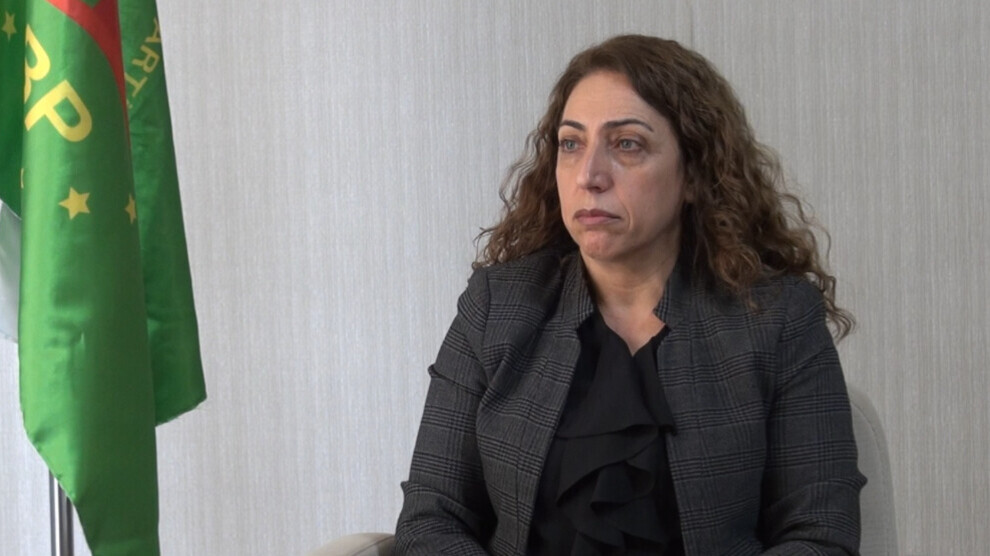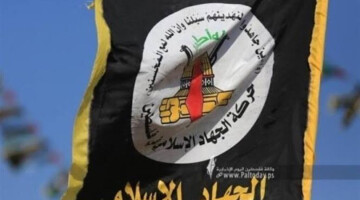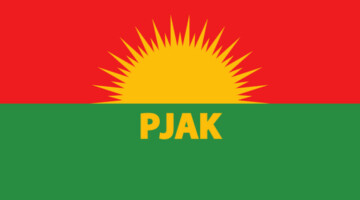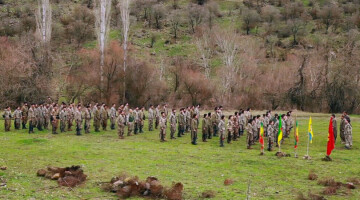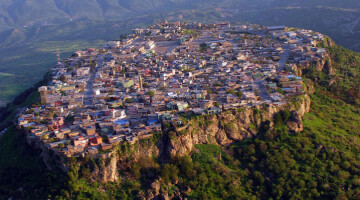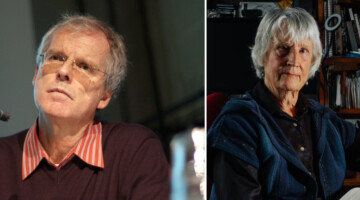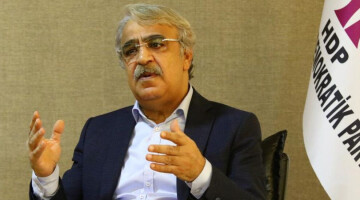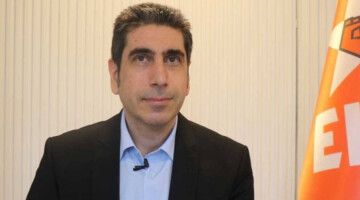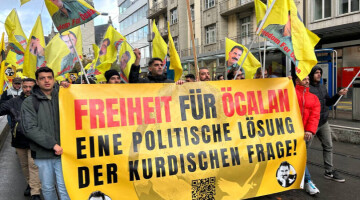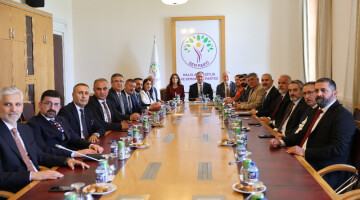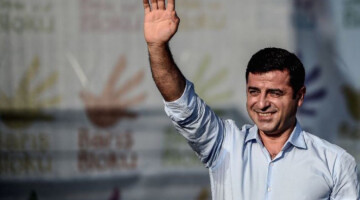The Kurdish political movement in Turkey contested the parliamentary elections on 14 May with the Green Left Party and did not achieve the expected share of the vote. After the 28 May presidential election, the party organs held internal meetings and announced that they had started a process of criticism and self-criticism. The same announcement said that the second phase of deliberations would take place in the provincial and district associations and the third phase in public.
All components of Kurdish politics are currently holding meetings in the provinces and districts in order to prepare for a new process and to receive criticism and suggestions from the field. One of the politicians attending the meetings is Saliha Aydeniz, co-chair of the Democratic Regions Party (DBP). The Kurdish politician spoke to ANF about the ongoing discussion process.
How did the required meetings after the elections begin?
In the post-election period, meetings were first held at the central level. At these meetings it became clear that a comprehensive process of criticism and self-criticism had to be carried out. Based on this need, we made holistic assessments with all our organisations in the provinces and districts, with the executive committees of our political parties and institutions, and with our friends who worked actively during the elections. We agreed that a process based on self-criticism and criticism should take place. Following the findings that emerged from the local meetings, it was decided to conduct a process in which local people will also participate as subjects. We will structure the coming process with a series of meetings where the determination to be a people's party and to lead the people's struggle together will be put forward. Through self-criticism and the disclosure of the shortcomings and inadequacies that have been exposed, a new line of struggle will emerge.
How were the planning and contents of the consultations determined?
The meetings were divided into seven regions. Within these regions, delegations were formed that included co-chairs and members of the party council. Then meetings were held in the provinces and districts. Attendance at these meetings was at the highest level. Meetings were held both within the specific women's structure and in general. In both cases, women's participation was very good and very serious contributions and observations were made to evaluate the process. In addition to the evaluation, self-criticism was also practised and suggestions were made for overcoming the shortcomings encountered in the restructuring process and for new methods. I was in the region of Şirnak. We have not yet had the opportunity to compare the results of all the regions at one meeting, but from the conversations held with individuals, it appears that almost everywhere the same level and quality has been achieved. In this whole process of criticism and self-criticism, we have, of course, included ourselves and assessed our own responsibility. We assume that our structures will achieve their goal as a result of discussions with the people.
What points were criticised by the grassroots?
The method of nominating candidates before the parliamentary elections, not having our own presidential candidate and the alliance question were frequent points of criticism. It became clear that our Third Way policy was not sufficiently recognised. Our alliance policy was strategic and correct, but the mistakes we made in implementing this policy were frequently mentioned at the local level. One of the criticisms was that, instead of socially organising the Third Way, we stuck to the ways prescribed by the existing state system. With regard to our women's liberation struggle, it was criticised that we did not take the will of women as a basis and that we were not proactive enough and thus lacked freedom. There was also criticism that we do not act in accordance with the statute. There was criticism that the local base is not seen as will and does not take initiative. There was also discussion about the fact that the local federations do not act without central circulars and that there is a disconnection from the street. The need to set policy collectively and in an organised way was often raised.
Do you think these consultations achieved the intended results?
The meetings were important to strengthen the mechanism of criticism and self-criticism and to find our own strengths in relation to the organisation. Most of the findings made were in this direction. Since 2014, there has been a systematic attack by the state against board members and leading cadres. This situation has led to a shrinkage, but beyond that there is a narrowed approach within our own organisation. Through this self-criticism, we came to the conclusion that we can come out of this process by strengthening the organisation and involving the people more as a basis in practice. The most important finding in this process was that the leadership of the people was not taken as a basis. The fact that this observation was made is, in my opinion, an indication that our meetings have achieved the desired result.
It seems that the meetings will continue. What procedure was chosen?
We first started the meetings in Ankara. After a series of meetings with the co-chairs, the executive committee, the deputies and the members of the party council, a schedule was drawn up for talks in the provinces and districts. Central representatives made an introduction, assessed the process, mentioned the shortcomings identified by the central office and then left the floor to those present in the meeting room. So, in this, we were in a listening position. The meetings were based entirely on local readings of developments and on criticism and self-criticism. As a continuation, we will hold popular meetings and use the same method.
Is the Kurdish political movement taking a new course as a result of the meetings? Or is the existing course to be improved?
The demands, the criticism and the approach of the people in the assemblies will determine our course in the new period or strengthen and shape the existing course. It is too early to say. However, it must be said that in the run-up to the local elections, we are not only concerned with winning these elections, but we believe it is crucial to lay the foundations for long-term organisation. As the DBP, we must self-critically reproach ourselves for not having been able to respond to this process and provide sufficient ideological support to the HDP. We have a strong perspective ahead of us. This perspective is about rebuilding life in a general framework. Of course, we have shortcomings. Our political parties and institutions should have strengthened our Third Way politics, the social pillar of our organisational model, and worked on a struggle-oriented basis instead of an election-oriented basis. This time we will take this path with people to avoid the same situation. Our path will lead in the direction drawn by the people and this time we will be very careful not to make tactical mistakes despite having the right paradigm.

